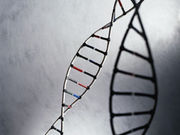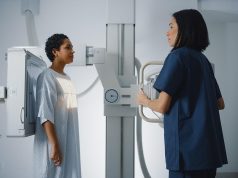Analysis can help women who won’t benefit from additional treatment to avoid side effects
FRIDAY, March 11, 2016 (HealthDay News) — The 21-gene recurrence score (Oncotype DX) seems to accurately identify women with early-stage breast cancer who don’t need chemotherapy, according to a study presented at the European Breast Cancer Conference, held from March 9 to 11 in Amsterdam.
Oleg Gluz, M.D., a scientific coordinator of the West German Study Group in Monchengladbach, and colleagues recruited 3,1980 women with node negative or node positive early breast cancer, average age 56. The cancers were diagnosed as human epidermal growth factor receptor 2 (HER2)-positive and HER2 negative. In this trial, patients who had a score of 11 or less were classified as low risk for having their cancer recur, even if they had other factors, such as tumor size or age, that would normally suggest they might be at high risk.
The researchers found that 15.3 percent of the women had a score of 11 or less. They were treated with anti-hormonal therapy only. Women with scores of more than 11, or with more than four involved lymph nodes or HER2-negative disease, were randomly assigned to one of two different chemotherapy treatments.
After an average of 55 months of follow-up, nearly all of the low-risk patients treated with anti-hormonal therapy alone were alive and disease-free, Gluz told HealthDay. Among the women treated with chemotherapy, 94 percent with moderate-risk cancer and 84 percent with high-risk cancer were alive and cancer-free five years after treatment, he said.
The 21-gene RS (Oncotype DX) was provided by Genomic Health and the chemotherapy study was supported by Sanofi Aventis and Amgen.
Copyright © 2016 HealthDay. All rights reserved.








